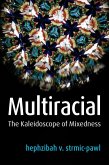Dieser Download kann aus rechtlichen Gründen nur mit Rechnungsadresse in A, B, BG, CY, CZ, D, DK, EW, E, FIN, F, GR, HR, H, IRL, I, LT, L, LR, M, NL, PL, P, R, S, SLO, SK ausgeliefert werden.
Paul Atkinson, Cardiff University
"Extending their discipline-defining contributions, Fine and Hallett broaden our understanding of the social dimension of human interactions as they impact meaning-making and action. They propose an original and encompassing sociological approach to group life that will be widely referenced in years to come."
Michèle Lamont, Harvard University
"Their roadmap is urgently needed in a sociology currently obsessed with provincialism, parochialism, and only the dark sides of life. Amidst this doom and gloom, Fine and Hallett shine a bright light on the familiar, which often suffers from, well, its familiarity. Theirs is not just an effort to remind everyone that local sociology is still important. It is the framework for doing sociology."
Seth Abrutyn, Symbolic Interaction
"[Fine and Hallett's] invitation toward a local sociology is one to which many sociologists should RSVP both affirmatively and enthusiastically. [...They] have written a book that is timely and provocative, as well as firmly rooted in long-standing sociological traditions. Moreover, they dare us as sociologists to break free from tired conceptual dichotomies of macro versus micro."
Social Forces









